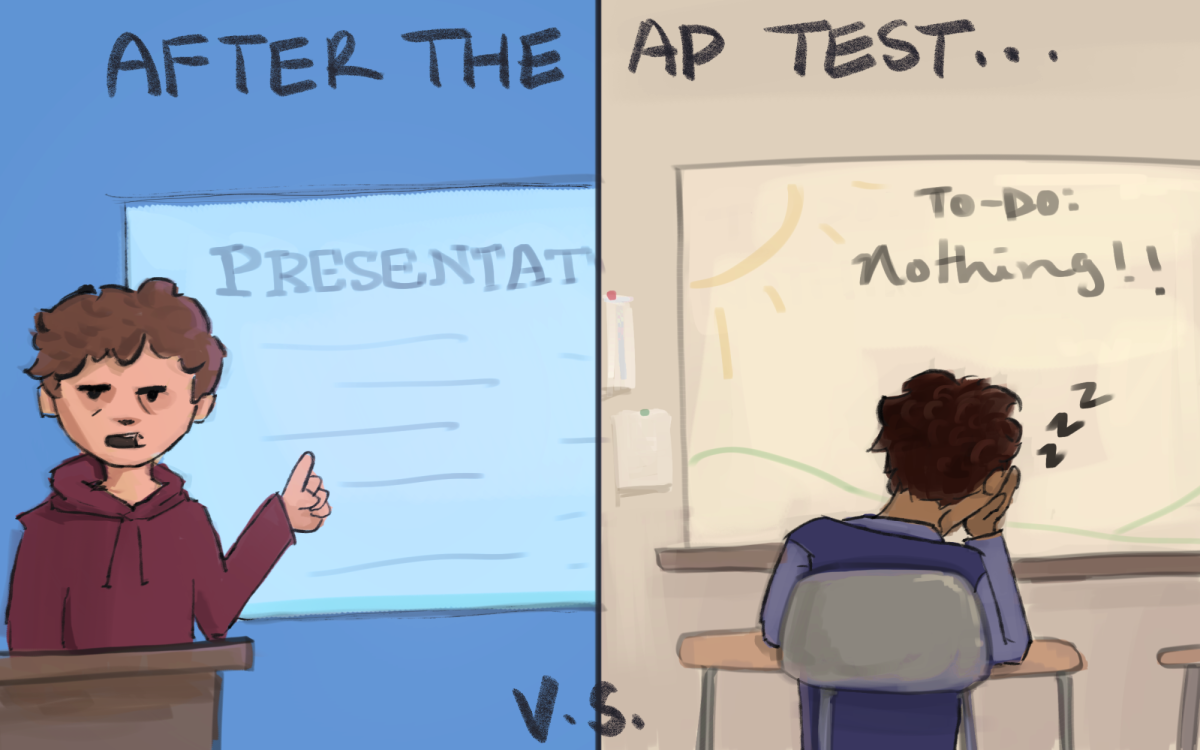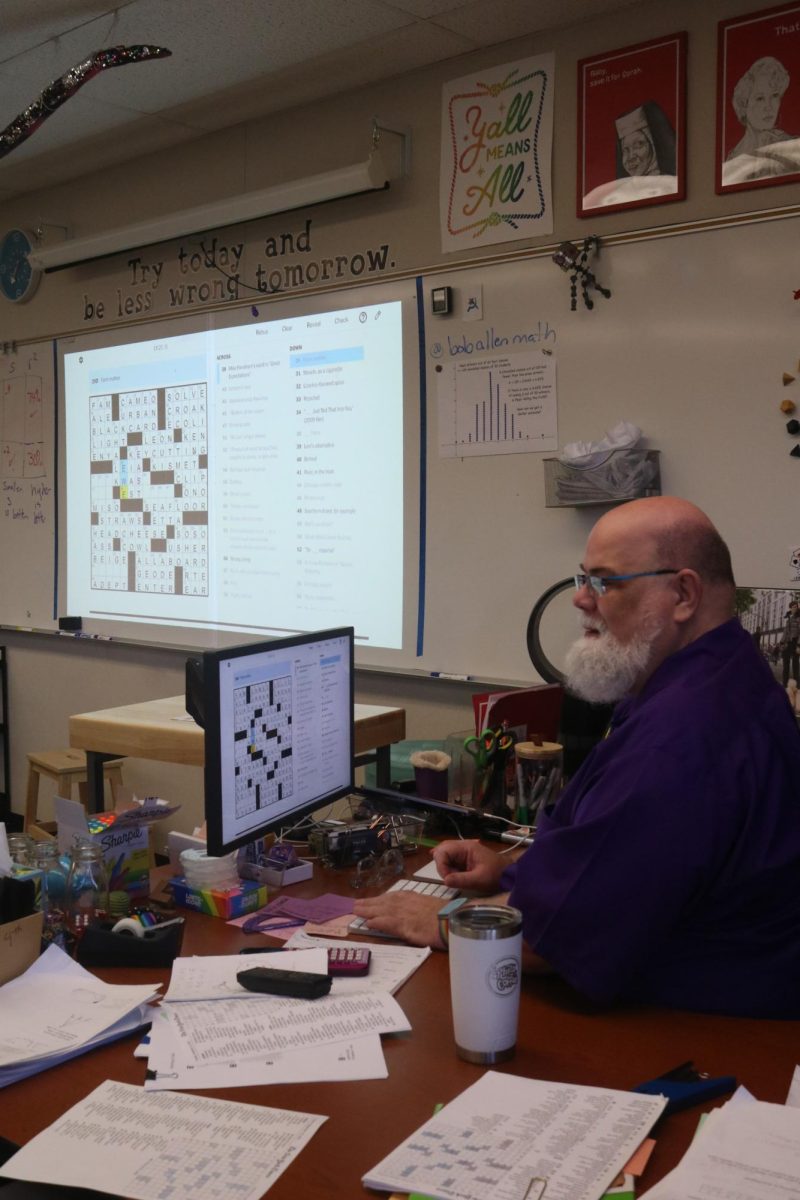At the end of every rainbow lies a pot of gold.
Likewise, students look forward to a few weeks of relaxing nothingness at the end of demanding AP classes. But sometimes, their teachers have other unfortunate plans in mind.
Different AP teachers follow different class schedules after AP exams wrap up in mid-May. Some want to give both themselves and their students a break by playing movies or having free time in every class. Others plan final projects or extra activities during class to keep their students busy.
But taking an AP exam shows that students have already learned everything that there is to learn for that course. Giving them more work on the same topics that they’ve already extensively practiced throughout the school year isn’t strengthening their brain in any way.
It’s just busy work.
Even worse, some of late projects are often worth enough points to completely tank a student’s grade if they don’t do well. This is especially frustrating when students have poured hours of work into a class to prepare for tests and meaningful assignments throughout the year. It also creates an unnecessary amount of stress for students who have already proven their knowledge of a subject.
AP students notoriously have negatively impacted their mental health throughout the school year by taking these classes.
A 2015 study from the University of South Florida found that students in accelerated programs experience significantly higher stress compared to their peers. Students in just one AP class are likely to be taking other such classes, in addition to various extracurriculars.
It is not like students feel any need to keep working, either. They know that their grades are more or less set in stone after finals, which usually take place close to exams, so they are too unmotivated to put in real effort into assignments at the end of the year.
Once AP exams are over, students generally have more time on their hands without as much homework and studying. They can pursue personal interests, spend more time on other work, or even try to fix their sleep schedule. Having to work on new projects and assignments can take time away from that.
If these students have time to relax, it should be given to them. Instead, assigning more work is essentially pushing them to burn out. A school’s purpose is not just to educate but to also take care of its students.
An AP class is a college-level class, but it is only being treated in that manner academically. If teachers are trusting students with heavy workloads by using the AP label as a guise, then students should also be treated with that high a level of respect and freedom in a personal way.
There are two options to use this period of opportunity properly. Either students can finally be allowed a breather, or they can actually be educated in a manner that works.
In science classes, students can have fun conducting labs that are more heavily activity-based rather than writing-based. In English, students can be offered guidance through college essays or casual book clubs with books they choose.
In math…to be honest, nobody really wants to be tortured with even more math work, but teaching financial literacy would be especially helpful for teenagers, or maybe optional research projects.
Having these types of projects available for extra credit could also increase student interest and help them in extremely hard classes.
Essentially, activities should be optional, not time-consuming. Student enjoyment should be a priority. None of these options should be worth a grade that can completely change a student’s standing in the class.
But first, teachers should ask their students which activity they prefer and work with them to create classes that everyone can enjoy. Many students only look forward to summer break because they see it as an end to grueling work, not because they do not enjoy the feelings of community and delight that being in a class can bring.
Even if students do not recognize it now, in adulthood, they will want to look back on their memories in class as precious. So, it is up to teachers to make high school a chapter in their lives of acquiring not just valuable knowledge but also fun and meaningful experiences.
What should AP classes do after tests?
Yaalini Augustine, Staff Writer
May 1, 2025
As one student trudges on with class assignments in his AP class, another relaxes as he unwinds after the rigorous AP exams.
Story continues below advertisement
More to Discover
About the Contributors

Yaalini Augustine, Staff Writer
Yaalini is an excited new member of The Californian. After wanting to join for the past few years, she is looking forward to finally exploring the world of journalism as a senior. Yaalini can easily be found at home trying and often failing new projects and crafts. Crocheting is one of her favorites, and this year she’s trying out sewing and mehendi. She also loves reading, kpop, and binging shows for way too long with her pet birds. Yaalini is eager to make the most of her last year of high school and enjoy it as much as she can.

Niyati Gupta, Staff Writer
Senior Niyati Gupta is a first year member of The Californian Paper. In her free time, she enjoys playing soccer, drawing, and binging Netflix. She also spends a lot of time baking with her brother and hanging out with friends. As a new member of the newspaper team, Niyati is excited to meet new people and report about interesting events on campus.


